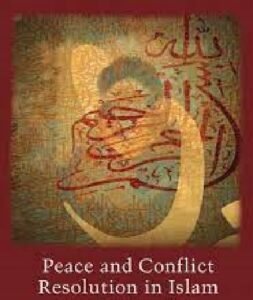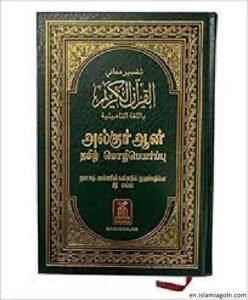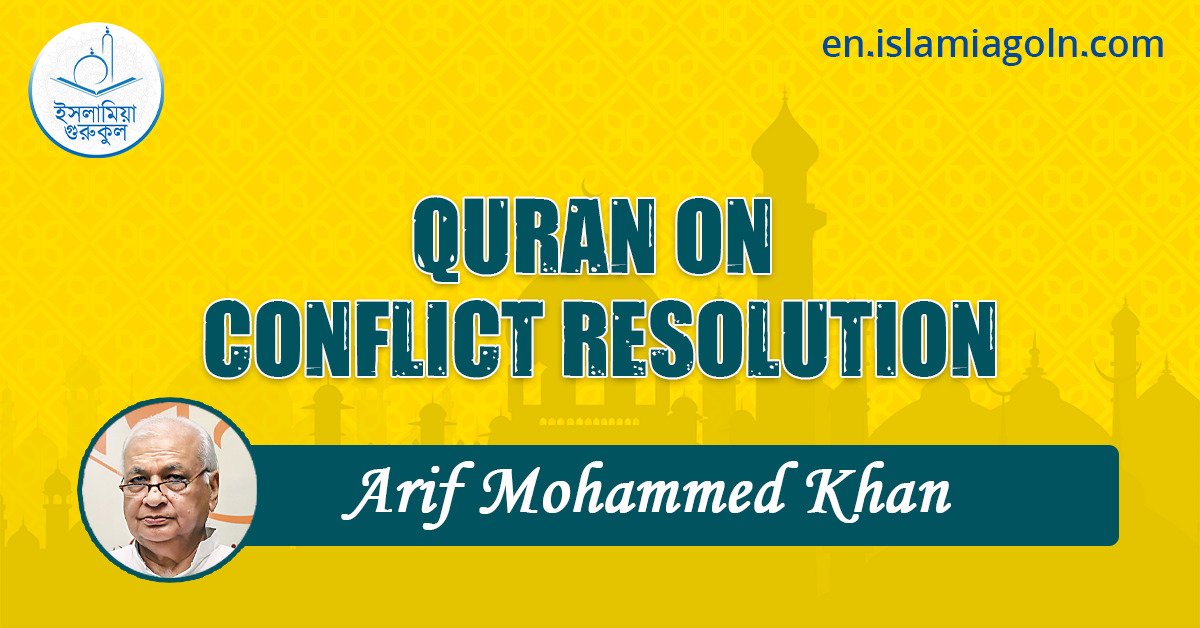Today is our Focus: QURAN ON CONFLICT RESOLUTION

QURAN ON CONFLICT RESOLUTION
Right from the dawn of civilisation the mankind is faced with the challenge of managing conflicts, violence and wars. No civilisation has succeeded to end the bloodshed but the quest for peace continues in various hues. There is general realisation that conflicts cannot be resolved completely but can be managed through the instruments like negotiation, mediation and facilitation to avoid violence and loss of life.
Quran has dealt with the subject of conflict resolution in a peculiar manner that accords with its basic emphasis on reforming and building the individual as a necessary prerequisite for building a reformed and better world.
Quran says that there is something God-like in man: ‘Your Lord said to the angels; I am about to create man from sounding clay, from mud molded into shape. After I have fashioned him in due proportion and breathed into him my spirit, fall you down in obeisance to him (15.28. 29) This divine nature of man is attested by a Prophetic tradition that ‘God created Adam upon his own form’.

However, Quran also acknowledges that man is selfish and greedy and has the propensity to do things evil. It says: ‘Behold your Lord said to the angels: ‘I will create a vicegerent on earth. They said: ‘Will you place therein one who will make mischief therein and shed blood’ (2.30). In numerous other verses Quran talks of the sanctity of human life and of the divine covenant which obligates man not to shed blood and uphold peace and justice.
Conscious of the dual inclinations of man the first thing Quran underlines is the quality of patience and perseverance and says: ‘O you my servants who believe! Fear your Lord: good is (the reward) for those who do good in this world. Spacious is Allah’s earth! Those who patiently persevere will truly receive a reward without measure (39.10) It is important to remember that in no less than 97 verses Quran has exhorted the believers to exercise patience in the face of adversity and provocation.

It is true that on the legal plane Quran allows the victims of persecution to fight back in self-defense subject to the condition that they retaliate only to the extent they have been harmed but even on this occasion Quran reminds them of their moral obligation to keep in mind the merits of forgiveness. It says: ‘And if you punish, then punish them with the like of that with which you were afflicted. But if you endure patiently, verily, it is better for the patient ones.’ (16.126)
Quran emphatically asserts that the good and evil are not alike and exhorts the believers to repel the evil with good. It says: ‘Nor, can Goodness and Evil be equal. Repel (Evil) with what is better then will he between whom and you was hatred become as it were your friend and intimate.’ (41.34)
Quran further says that the existing conflicts should not be viewed as permanent enmities and a continuous process of building bridges must be in place by dealing kindly with those who indulge not in persecution: It may be that Allah will grant love (and friendship) between you and those whom you (now) hold as enemies’ and that ‘God forbids you not from dealing kindly with those who fight you not for your faith, nor drive you out of your homes (60.7-8).
Strangely, the history of last 1,400 years shows that the Muslim authorities in the conduct of public affairs have largely ignored the Quranic principles of conflict resolution and these teachings have remained confined to theory or at best academic discussions.

2 thoughts on “QURAN ON CONFLICT RESOLUTION”